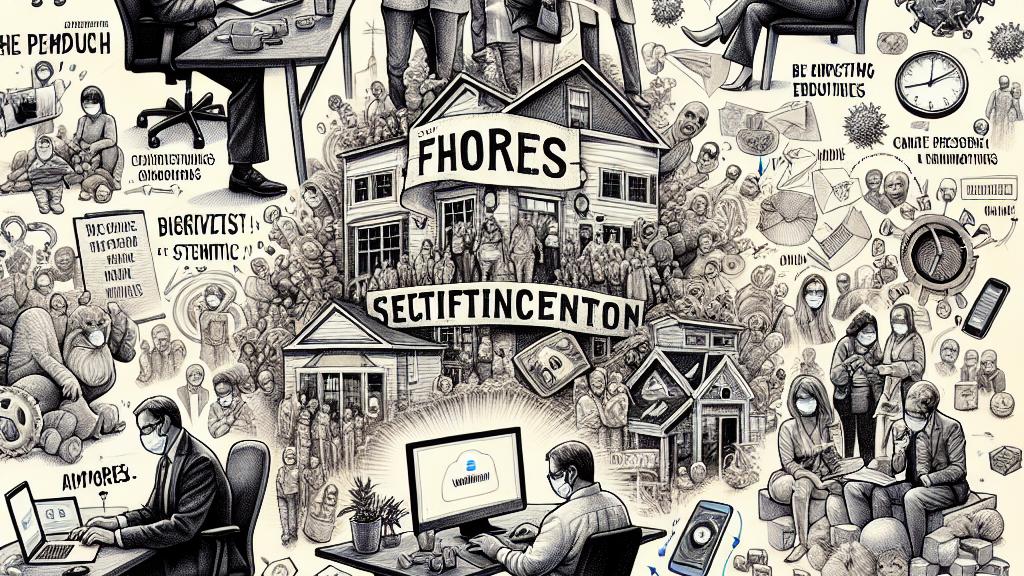The Lasting Impact of Remote Work Post-Pandemic
Overview
- Remote work has dramatically reshaped the employment landscape across the globe.
- Economists foresee that this trend of flexible work arrangements will continue to expand.
- The pandemic has forever altered perceptions of work, creating a new normal that emphasizes flexibility.

The Shift to Remote Work
Since the onset of the COVID-19 pandemic, the United States has witnessed a seismic shift towards remote work—a shift that, according to many economists, is here to stay. Research from Stanford economists Nicholas Bloom and Steven Davis reveals that approximately one-third of American workers now engage in remote work at least part-time, a staggering increase from pre-pandemic levels. This flexibility has become a vital lifeline, particularly for parents trying to juggle work responsibilities and family obligations. In fact, many of these individuals are willing to take pay cuts just to retain the option of working from home. More surprisingly, the stigma surrounding home distractions—such as the tempting fridge or the allure of daytime television—has been effectively debunked. With effective management strategies, remote employees can demonstrate productivity levels that match, or even surpass, those of their in-office colleagues.
Economic Implications
The ramifications of this transition extend far beyond individual households and businesses, influencing entire urban economies. Major cities such as San Francisco and Washington, D.C. are grappling with the financial impact of reduced commuter traffic, which has led to significant revenue losses for local businesses that previously thrived on the bustling workforce. As companies adopt a remote-first culture, local governments must innovate to retain vibrant economic activity in their cities. Additionally, this remote work phenomenon raises crucial inequality concerns. It primarily benefits highly educated workers in well-paying jobs, potentially leaving behind those in lower-income positions who lack similar opportunities. Therefore, as organizations develop tools and solutions to enhance remote work, it is essential they prioritize equity and inclusivity, ensuring all workers can share in the benefits of this evolving work environment.
The Future of Remote Work
Looking toward the future, it is evident that remote work is not just a passing trend; it is rapidly becoming an integral aspect of the job market. Reports indicate an impressive 11% increase in remote job opportunities for 2023, showcasing substantial demand across various sectors, from technology to education. Companies are realizing that recruiting talent from around the world is not only feasible but also advantageous, leading to higher employee satisfaction and improved retention rates. This shift allows individuals to forge their own paths, creating a work-life balance that suits their unique needs. As businesses embrace this transformation, they will face both challenges and exciting opportunities that can pave the way for innovative work models focused on adaptability and inclusivity. In this evolving landscape, the emphasis on flexibility and employee engagement will be paramount, establishing the groundwork for success in the modern economy.

Loading...